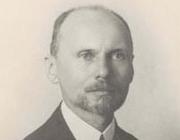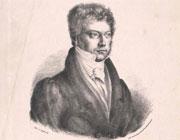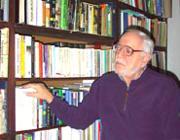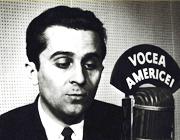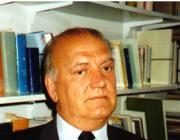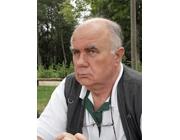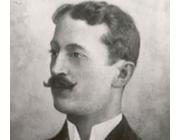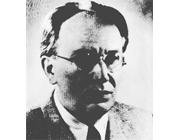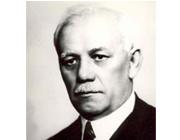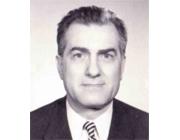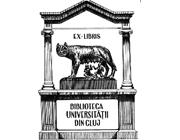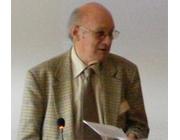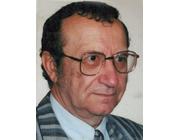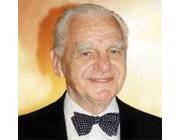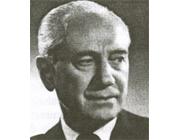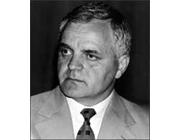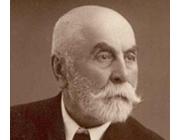A donat întregul său fond documentar conținând fotografii, filme și diapozitive, înregistrări audio, documente originale sau fotocopii, publicații pe tema istoriei și culturii roma. Donația este completată cu documente și publicații ce reflectă istoria familiei, a comunității germane din România, precum și manuscrise sau corespondență rezultate din activitatea sa de gazetar.
Francisc Remmel s-a născut în familia Annei (n. Jochmann) și Francisc J. Remmel. Își începe studiile în localitatea natală, apoi la Beiuș la Gimnaziul patronat de Biserica Greco-Catolică românească, absolvind în 1950 Liceul de băieți nr. 1 din Timișoara. Urmează Școala pedagogică în același oraș, obținând diploma în 1952.
În perioada 1953-1958 a fost director la Şcoala Germană de 7 ani din Orăştie. În această perioadă a reuşit să salveze şcoala de la desfiinţare, atrăgându-şi susţinerea comunităţii germane din oraş, dar şi prin dialog cu forurile politice şi ministeriale de la Bucureşti, unde reuşeşte să-și atragă sprijinul ziarului Neuer Weg. Alături de colegii săi şi cu sprijinul comunităţii germane orăştiene, pentru a preîntâmpina pericolul scăderii numărului de elevi, fapt ce ducea la închiderea şcolii, construiesc un internat, unde găzduiesc copii din familii sărace de şvabi din jud. Satu Mare, şcolarizându-i. Pus în situaţia de a nu avea manuale în limba germană pentru materiile din programă, a capacitat colegii şi au multiplicat sub forma rezumatelor traduse manualele în limba română. A mai activat ca profesor la Şcoala germană din Hunedoara, ce funcţiona ca secţie pe lângă Şcoala Medie Mixtă OM (cartierul numit Oraşul Muncitoresc).
În anul 1964 i se face propunerea, de către Erich Wayand, redactorul-şef adjunct de la Neuer Weg, să devină redactor. Acceptă pentru o perioadă de probă de un an, apoi solicită încă un an de acomodare, având rezerve că „originile nesănătoase” - provenea dintr-o familie de proprietari, în plus şi aparţinând unei minorităţi - îi vor putea afecta cariera de ziarist. Începând cu anul 1966, este transferat din învăţământ la redacţia ziarului. În 35 de ani de presă, a fost corespondent judeţean, interjudeţean, redactor, redactor principal, lucrând în jud. Hunedoara, Alba, Arad, Timiş, Caraş-Severin, Sibiu, Bucureşti. A mai colaborat cu Radio Timişoara şi la Televiziunea Română (redacţia de limbă germană). Parcurge stagii de formare la Academia ,,Ştefan Gheorghiu” - Facultatea de ziaristică, precum şi de perfecţionare la Aachen, în Germania.
La începutul anului 1990 îi convoacă pe germanii din Hunedoara la Biserica luterană pentru a pune bazele organizaţiei locale a Forumului Democrat German, fiind ales primul preşedinte. Refuză această onoare, considerând că este mai util să-şi continue activitatea de ziarist. În anul 1995 este cooptat ca lector asociat pentru cursul de Tehnica reportajului, în cadrul programului internaţional de formare a jurnalişilor organizat de Universitatea Babeş-Bolyai şi Academia Evanghelică din Frankfurt.
În paralel cu meseria de jurnalist, Fr. Remmel desfășoară o amplă activitate de cercetare a vieții romilor din România. A scris numeroase articole de presă, dar mai ales studii publicate în reviste de specialitate.
A fost distins cu Crucea de Merit în Aur a Republicii Austria - acordată de Preşedintele Austriei ca semn al aprecierii activităţii de promovare a legăturilor interetnice, a realizărilor jurnalistice şi editoriale puse în slujba cunoaşterii şi apropierii interetnice, 2007; Diploma de onoare a Societăţii Internaţionale pentru Cercetarea Valorilor Culturale ale Romilor, Budapesta, 2000.
Este autor / coautor de volume în limba germană: Über alle sieben Meere (Peste șapte mări), 1978; Karawanen auf der Todesstraße (Caravane pe șoseaua morții), 1982; Zwischen Wellen und Wind (Între valuri și vânt), 1982; Der Schwarze Pirat (Piratul negru), 1984; Sterne, Sonne, Stand (Stele, Soare, Nisip), 1987; Im Zeichen der Schlange (Sub semnul șarpelui), 1989; Safari, 1989; Die Roma Romäniens - Volk ohne Hiterland (Romii din România – Un popor fără ţară), 1993; Nakte Füßen auf steinigen Straße (Desculți pe drumuri pietruite); Der Turm zu Babel. Ein Mosaik zur Rumänischen Romagesellschaft (Turnul Babel. Un mozaic al societăţii rome din România), 2004; „Alle Wunder dauern drei Tage”. Vom Bulibascha der Zigeuner zum Kaiser der Roma („Orice minune ţine trei zile”. De la Bulibaşa ţiganilor la Împăratul romilor), 2005; „Botschaft und Illusion”. Zeugnisse der Literatur der Rumänische Roma (,,Mesaj și iluzie”. Mărturii ale literaturii romilor români), 2007; Die Rumänischen Roma in Daten und Fakten (Romii din România în date și fapte), 2007; „Zigeunersitte - Zigeunerrecht”. Traditionen im Alltag der Rumänischen Roma („Vama țiganilor - Legea țiganilor”. Tradiții în viața de zi cu zi a romilor români), 2008; Die Fremden aus Indien (Străinii din India), 2010; Vor- und Zwischenfalle (Întâmplări și incidente), 2012; Gedenken und Bedenken. Begebenheiten aus der rumänischen Romagesellschaft 2012-2015 (Comemorări şi evocări. Evenimente derulate de Asociația Română a Romilor. 2012-2015), 2015.
A publicat articole și studii de romologie în reviste științifice/de popularizare: „Siebenbürgische Semesterblätter” (Munchen), „Patrin” și „Roma cajtung” (Oberwart, Austria), „Kaindl Archiv” (Augsburg, Germania), „Pannonia. Magazin für internationale Zusammenarbeit” (Eisenstadt, Austria), „Südosteuropa Mitteilungen” (München), „Germanistische Beiträge. Literatur und kulturpolitische Studien” (Sibiu), „Volk und Kultur” (București), „Lacio Drom” (Roma, Italia), „Forschungen zur Volks- und Landeskunde” (Sibiu), „Neo Drom”, „Divano Romano” (Sibiu), „Ketano Drom” și „Közös út” (Budapesta).


